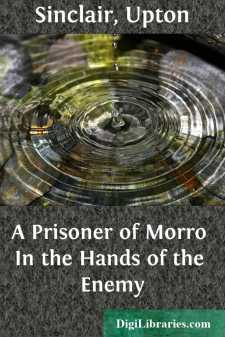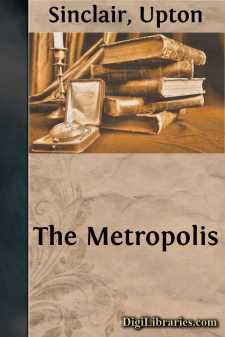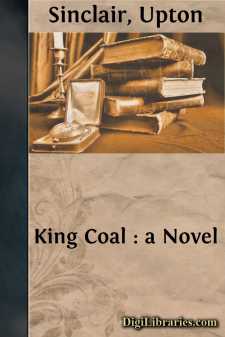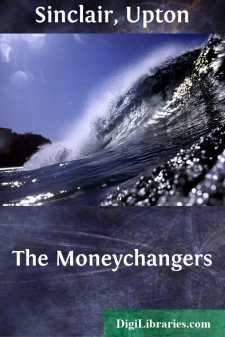Categories
- Antiques & Collectibles 13
- Architecture 36
- Art 48
- Bibles 22
- Biography & Autobiography 816
- Body, Mind & Spirit 145
- Business & Economics 28
- Children's Books 18
- Children's Fiction 14
- Computers 4
- Cooking 94
- Crafts & Hobbies 4
- Drama 346
- Education 58
- Family & Relationships 59
- Fiction 11831
- Foreign Language Study 3
- Games 19
- Gardening 17
- Health & Fitness 34
- History 1378
- House & Home 1
- Humor 147
- Juvenile Fiction 1873
- Juvenile Nonfiction 202
- Language Arts & Disciplines 89
- Law 16
- Literary Collections 686
- Literary Criticism 179
- Mathematics 13
- Medical 41
- Music 40
- Nature 179
- Non-Classifiable 1768
- Performing Arts 7
- Periodicals 1453
- Philosophy 66
- Photography 2
- Poetry 897
- Political Science 203
- Psychology 45
- Reference 154
- Religion 516
- Science 126
- Self-Help 86
- Social Science 82
- Sports & Recreation 34
- Study Aids 3
- Technology & Engineering 59
- Transportation 23
- Travel 463
- True Crime 29
Upton Sinclair
Upton Sinclair (1878-1968) was an American writer and social reformer, best known for his novel "The Jungle," which exposed the harsh conditions and unsanitary practices in the U.S. meatpacking industry. His work prompted public outcry and led to significant reforms in food safety laws, including the Pure Food and Drug Act and the Meat Inspection Act in 1906. Sinclair's prolific career included nearly 100 books, through which he championed social justice, labor rights, and political reform.
Author's Books:
Sort by:
by:
Upton Sinclair
CHAPTER I. SIGHTING A PRIZE. About noon of a day in May during the recent year the converted tug Uncas left Key West to join the blockading squadron off the northern coast of Cuba. Her commander was Lieutenant Raymond, and her junior officer Naval Cadet Clifford Faraday. The regular junior officer was absent on sick leave, and Cadet Faraday had been assigned to his place in recognition of gallant...
more...
by:
Upton Sinclair
CHAPTER I "Return at ten-thirty," the General said to his chauffeur, and then they entered the corridor of the hotel. Montague gazed about him, and found himself trembling just a little with anticipation. It was not the magnificence of the place. The quiet uptown hotel would have seemed magnificent to him, fresh as he was from the country; but, he did not see the marble columns and the gilded...
more...
by:
Upton Sinclair
Chapter 1 It was four o'clock when the ceremony was over and the carriages began to arrive. There had been a crowd following all the way, owing to the exuberance of Marija Berczynskas. The occasion rested heavily upon Marija's broad shoulders—it was her task to see that all things went in due form, and after the best home traditions; and, flying wildly hither and thither, bowling every one...
more...
by:
Upton Sinclair
INTRODUCTION Upton Sinclair is one of the not too many writers who have consecrated their lives to the agitation for social justice, and who have also enrolled their art in the service of a set purpose. A great and non-temporizing enthusiast, he never flinched from making sacrifices. Now and then he attained great material successes as a writer, but invariably he invested and lost his earnings in...
more...
by:
Upton Sinclair
ACT ISCENE I[Shows a primeval forest, with great trees, thickets in background, and moss and ferns underfoot. A set in the foreground. To the left is a tent, about ten feet square, with a fly. The front and sides are rolled up, showing a rubber blanket spread, with bedding upon it; a rough stand, with books and some canned goods, a rifle, a fishing-rod, etc. Toward centre is a trench with the remains...
more...
by:
Upton Sinclair
THE NATUREWOMAN ACT I [Scene shows a luxuriously furnished drawing-room. Double doors, centre, opening to hall and stairway. Grand piano at right, fireplace next to it, with large easy-chair in front. Centre table; windows left, and chairs.] [At rise: ETHEL standing by table; a beautiful but rather frail girl of sixteen; opening a package containing photograph in frame.] ETHEL. Oceana! Oceana! [She...
more...
by:
Upton Sinclair
ACT I [JULIA PATTERSON'S apartments in a model tenement on the lower East Side. The scene shows the living-room, furnished very plainly, but in the newest taste; "arts and crafts" furniture, portraits of Morris and Ruskin on the walls; a centre table, a couple of easy-chairs, a divan and many book-shelves. The entrance from the outer hall is at centre; entrance to the other rooms right and...
more...
by:
Upton Sinclair
INTRODUCTORY Bootstrap-lifting Bootstrap-lifting? says the reader. It is a vision I have seen: upon a vast plain, men and women are gathered in dense throngs, crouched in uncomfortable and distressing positions, their fingers hooked in the straps of their boots. They are engaged in lifting themselves; tugging and straining until they grow red in the face, exhausted. The perspiration streams from their...
more...
by:
Upton Sinclair
The scenes of the Play-play change with each act. For Act I the set is a drawing-room in a wealthy old New York home, entrances Right-center and Left. Both front and rear scenes are lighted by many small lights, which can be turned off a few at a time, so that one scene or the other fades slowly. When the Real-play is in full light, the Play-play is dark and invisible. When the front scene is entirely...
more...
by:
Upton Sinclair
CHAPTER I "I am," said Reggie Mann, "quite beside myself to meet this LucyDupree." "Who told you about her?" asked Allan Montague. "Ollie's been telling everybody about her," said Reggie. "It sounds really wonderful. But I fear he must have exaggerated." "People seem to develop a tendency to exaggeration," said Montague, "when they talk about...
more...











